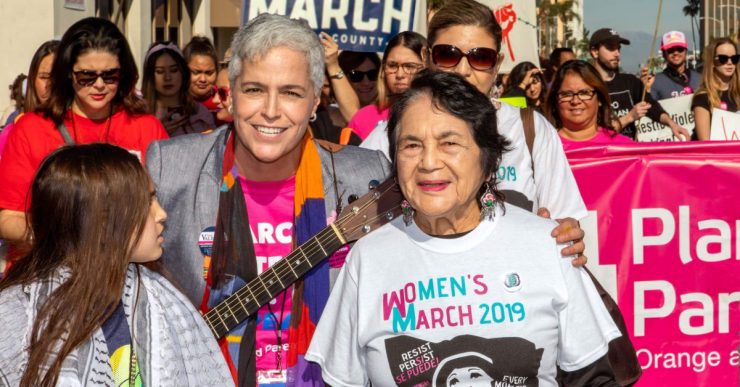As we celebrate Women’s Herstory Month and César Chávez Day, I took time to reflect on the impact of “La Causa” (or, “the cause,” a term used to describe the movement that sought to secure rights and consideration for workers) and how leadership was and continues to be practiced in the movement.
César Chávez and Dolores Huerta, along with many community members, worked tirelessly to draw attention to some of the most marginalized workers in our society – the farmworkers. These individuals worked and continue to work in extreme conditions to provide the food that nourishes the bodies of the American people, while their bodies wear thin from the harsh and unforgiving labor.
Founders of the United Farm Workers of America (UFW) union, and influenced by Fred Ross’ organizing, these leaders formed coalitions of grassroots leaders. They sought equitable and fair conditions for a large population of workers.
Organize and Seek Change
This type of servant leadership and direct organizing influenced my desire to work to create change. I recall immediately after watching the documentary “Dolores,” I knew I had to act, stand up, speak up, organize and bring together a community of justice-focused individuals to do our part. I did not look far. In fact, one can say we collided with each other because “la causa” called us to work.
The message was clear: every one of us possess the ability to organize and change the condition in our communities.
The cause, “la causa,” is different for each of us, yet every step toward change contributes to the larger movement. I additionally understood the added layers of opposition that figures like Dolores Huerta faced in her daily experience as a womxn organizer. Even so, she and other leaders did not stay quiet. They endured racist, sexist and even violent attacks. Through all of this, they remained firm in their nonviolent resistance and true to their vision.
The message was consistent: that we must take every opportunity to organize and seek concrete change in our respective spaces.
Working Toward Inclusion and Justice for All
Today, I continue to be motivated by the history of this work and the continued vision of justice. As a recent Chapman graduate, I continue to be inspired by the “Chaptivism” of many young activists – student activists who believe in coalitional work and bringing together students, professors, staff and community members to organize and improve the experiences of people of color in our institution. Many of those leaders organize coalitions and maintain a vison of equity and justice while fighting for real inclusion and representation.
While we rarely talk about the everyday leaders, I want to honor their work and further say that I am continually inspired by future change-makers who share this space. I am also inspired by their collective vision – a cross-generational, cross-sectional and multiracial vision. Leadership belongs to no one and is available for everyone to exercise.
That is ultimately “la causa”: to keep moving forward, not to be dissuaded, and to know that every single victory contributes to the larger change we seek. This is the work entrusted to each of us, and I continue to look toward the future and stay authentic to the vision of inclusion and justice for all.
During the birth month of César Chávez (born March 31, 1927), I continue to be moved by the sacrifice and history of “La Causa” and observe Women’s Herstory Month by honoring the words of my dear friend and mentor, Dolores Huerta (age 90). In her mighty voice and words, “Sí, se puede.” Yes, indeed, we can!




